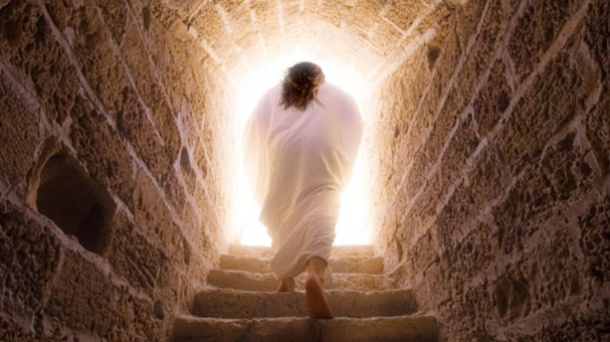
Matthew 28:6 "He is not here, for He has risen, just as He said. Come, see the place where He was lying. 7 Go quickly and tell His disciples that He has risen from the dead; and behold, He is going ahead of you into Galilee, there you will see Him; behold, I have told you.”
Introduction:
The past several days was dedicated to seeing how we observe eternity in this life. We noted that eternity is declared in creation, discerned in humanity, defined in the Bible and demonstrated in Jesus Christ. No other event or Christian doctrine is more proclaimed, more attacked and more crucial than Christ's resurrection from the dead. To get our footing on how Jesus' resurrection is communicated and how it is typically defended against critics, I will note four key areas of consideration that must be considered when talking about Jesus' resurrection from the dead:
1. His burial
2. The empty tomb
3. Post resurrection appearances to His followers
4. Changed lives
What top Christian apologists or defenders of the Christian faith say about Jesus' resurrection from the dead
Three of the top Christian Apologists today list the above four areas in their short list of what consistitutes the essence of the Biblical narrative of Christ's resurrection from the dead. I want the reader to note the last element in each of their listings, since the importance of Jesus' post-resurrected appearances will be discussed toward the end of this post.
First Josh McDowell in his book: "Evidence that Demands a Verdict" lists the following elements of what he calls "the resurrection scene":1
1. Jesus was dead
2. The tomb
3. The burial
4. The stone
5. The seal
6. The guard
7. The disciples
8. The post-resurrection appearances
The second Christian apologist, Liberty University Professor Gary Habermas, lists out a very similar short list in the argument he gives for the Resurrection that he calls the "minimal facts argument":2
1. The burial
2. The empty tomb
3. Post resurrection appearances
4. Changed lives (especially of the Apostle Paul).
Dr. Habermas' argument leans heavily on Paul's statements in 1 Corinthians 15:1-10, noting that the material represents early information that takes the reader back to within a year after the crucifixion and resurrection of Jesus.
The third Christian Apologist who argues for the historicity and reliability of the resurrection accounts of Jesus Christ is Dr. William Lane Craig, a world renowned expert and debater who frequently debates critics attacking the Bible. In his presentations, I have heard Dr. Craig list in a similar fashion the following essential elements to the account of Jesus' resurrection from the dead:
1. The burial
2. The empty tomb
3. The post resurrection appearances
4. The changed lives of the disciples
5. The conversion of the Apostle Paul
The reader can check out Dr. Craig's material at www.reasonablefaith.com.
The one area among these elements that merits further focus and explanation
In past posts over the years we have explored the great resurrection chapter of 1 Corinthians 15 and have aimed to unpack and proclaim all that Paul has to say in his masterful explanation and defense of the resurrection. Certainly the Gospel accounts have also been the focus of past blogs on this subject, wherein we have talked about the crucifixion, burial and empty tomb.
In listening to such fine articulators of the Christian faith above like McDowell, Habermas and Craig, as well as reading wonderful books and articles written by able Bible teachers, it has come to my attention that the way in which Jesus' post-resurrection appearances changed lives is worthy of consideration. Exploring how the post resurrected Jesus radically changed the lives of his disciples in the wake of His resurrection, as well as how He is still changing lives today lends immense credibility to the truth of the resurrection narratives.
What we observe in the post-resurrection appearances of Jesus
Whenever we consider the four Gospel records, the Book of Acts and 1 Corinthians 15, we find exactly one dozen episodes featuring Christ's post resurrection appearances. Furthermore, we find three common themes among them all:
1. Desperate condition of the people before His appearances
2. Direct encounter with the Risen Christ appearances themselves
3. Dramatic change that resulted from the appearances
Eight individuals or groups stand out in these post-resurrection appearance narratives, what we could call "post-resurrection profiles".
1. Mary Magdelene
2. Peter
3. Emmaus Road Disciples
4. Thomas
5. The Disciples in general
6. Group of 500 people
7. James, the half brother of Jesus
8. Paul
In scanning over these eight people or groups, we discover that in each case, their lives before, during and after each post-resurrection appearance leads to the conclusion that Christ indeed not only raised from the dead, but is alive and operating among His people. Such post-resurrection power is the basis for the salvation and Christian growth of every Christian living today.
Closing thought
The importance of Jesus' post-resurrection appearances cannot be over-estimated. Not only is such a truth a vital component in communicating and defending the truth of Jesus' resurrection from the dead, but also is vital in explaining how Jesus is able to change lives today. In closing, this is why we come across such statements as 1 Peter 1:3 "Blessed be the God and Father of our Lord Jesus Christ, who according to His great mercy has caused us to be born again to a living hope through the resurrection of Jesus Christ from the dead." May we think on such truths and live our lives for the living, risen and exalted Jesus Christ!
Endnotes:
1. Josh McDowell. Evidence that Demands a Verdict - Volume 1. Here's Life Publishers. Page 189.
2. Dr. Habermas' minimal facts presentation can be found at the following link at: https://www.youtube.com/watch?v=ay_Db4RwZ_M

No comments:
Post a Comment